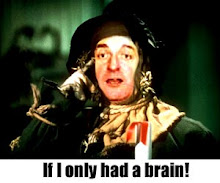Good, Bad, Bester
In the genre of science fiction, one name frequently tops the critic's top tens again and again: Alfred Bester. For those of you unfamiliar with the genre, in the 1950s, Bester came out with at least two novels that dazzled the community and a handful of short stories that mesmerised many. 'The Stars My Destination' is frequently cited as one of the very first cyberpunk books, a subgenre that really blossomed in the '80s I say 'one of' because his first novel, 'The Demolished Man', winner of the first ever Hugo Award, is often credited as being the first. His invention and breakneck storytelling style became legendary, and even today writers like William Gibson and Robert Silverberg still celebrate him.
Okay, eulogy over. Outside of 'Fondly Fahrenheit', a short story about a homicidal android and its doomed owner, I was never convinced by the legend. The famous timetravel short, 'The Men who Killed Mohammed', was a joke compared to the fabulous fun of Heinlein's true classic, 'All You Zombies'. And then I read about the infamous Gully Foyle in Bester's second novel, 'The Stars My Destination' (aka 'Tiger, Tiger!'). It does hurtle along, and yes, there is a lot going on, and yes, in that it differs to a lot of the traditional space operas of the time, it was an original use of the science fiction medium. But comparable to 'Moby Dick'? A classic tale of vengence and transcendence? In the words of Macauley Culkin, 'I don't think so!' All one need remember is that around the same time as Bester, the likes of Theodore Sturgeon ('More Than Human' anyone?) was writing some truly mature science fiction with strong themes and great originality. Philip Kendred Dick began to be published in the early 50s. In Britain, John Wyndham was churning out so-called 'cosy catastrophes' that nevertheless brimmed with intelligence and character. What 'The Stars My Destination' had in apparent cool, it lacked in character and substance.
In an effort to complete my education, I turned then to 'The Demolished Man' with a certain air of resignation. It tells the story of a billionaire's attempt to murder his rival in a world where telepaths have made murder obsolete. In what amounts to a very elaborate episode of Columbo, the tycoon (whose name I have already forgotten) must try to outwit the Grade 3 Telepathic police inspector while battling his inner demons (in this case his nightmare nemesis, 'the Man with no Face'). The novel is sprinkled throughout with little sidelights on this new society, at once more permissive and more uptight than ever before (telepaths are everywhere). In an obvious thematic attempt to deal with fascism and the mob's fear of the outsider, there are small eruptions of concern over the telepathic Guild, its internal struggle against elitism, and attempts to quell society's fears. To keep us on our toes, there are endless twists and turns of plot and the occasional strange gadget (a harmonic gun, for instance) thrown in for colour. Any attempt at characterisation is kept strictly at a Hollywood B-movie level (and Bester used to write in this format). To say that there is a happy ending all depends on who you mean there is a happy ending for, the police inspector or the reader. I actually gave up my time for this tripe.
Which is not to say there isn't a clever mind behind all this. Bester can put together an exciting train of events and it is often easy to see the movie in progress. Even his silly scrambled pages of telepath talk, looking like - and I stress looking like - some lost poetic doodles of George Herbert, even they might have a cinematic corollary. But despite all his Freudian (yes, him again) mumbo jumbo, his characters are thinner than the paper they're written on and when you can't care for characters, it's hard to care for the story.
Bester's early preeminence, for he fell from grace later in his career (when colleagues refused to review his last novel out of kindness), reminds me of the music world's Viennese wunderkind, Erich Korngold. From an early age, turn-of-the-century Vienna heralded Korngold as a new Mozart. Richard Strauss and other luminaries celebrated each of his early works. Yet he almost completely disappeared, spending his last years writing scores for Hollywood swashbucklers. What caused a sensation then also bewilders most critics now; his music really wasn't that good. So why the big deal? Many suspect the fact that his father was Vienna's most important music critic might have had something to do with it. Now Bester didn't have a famous critic father (not that I know of), but it's hard to know today what politics were played in the world of sci-fi in those heady days.
Anyhow I'm glad that's over.


1 Comments:
Always entertaining ... who needs books when Niall will read them for you? Phil.
Post a Comment
<< Home